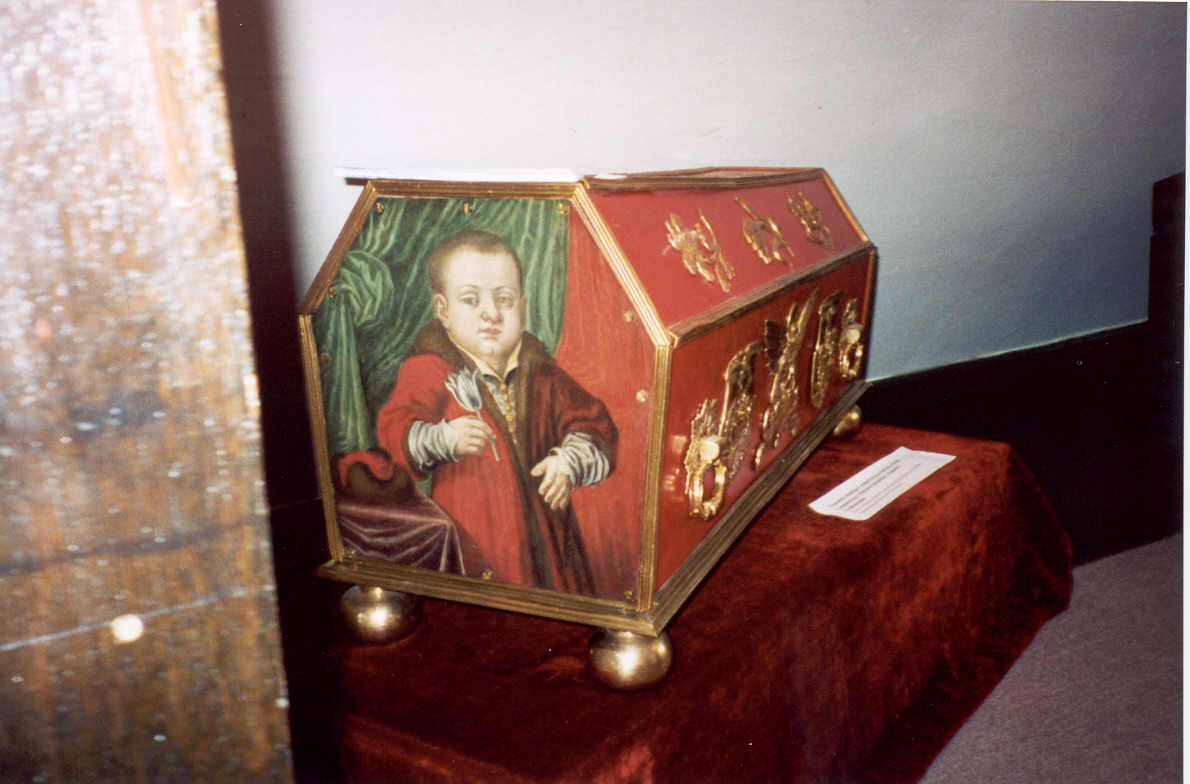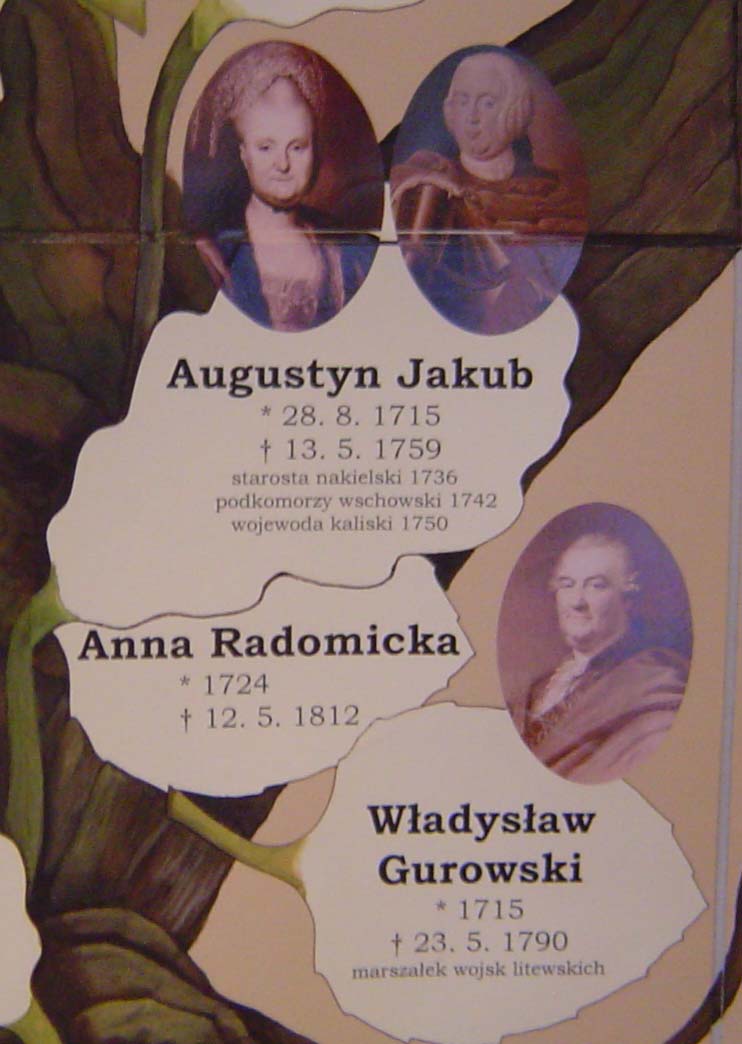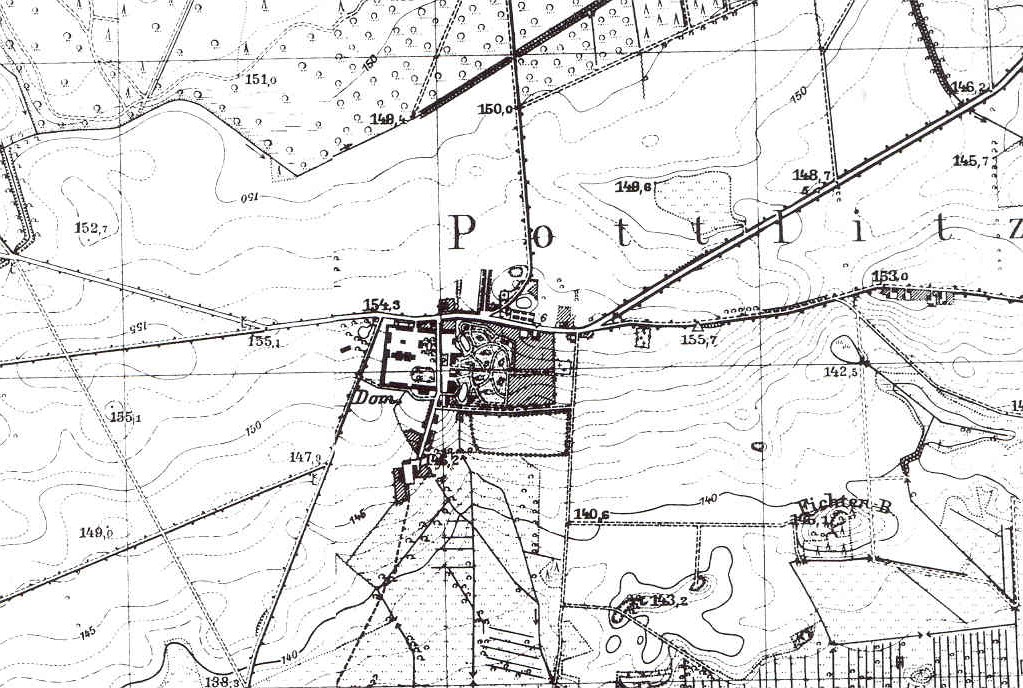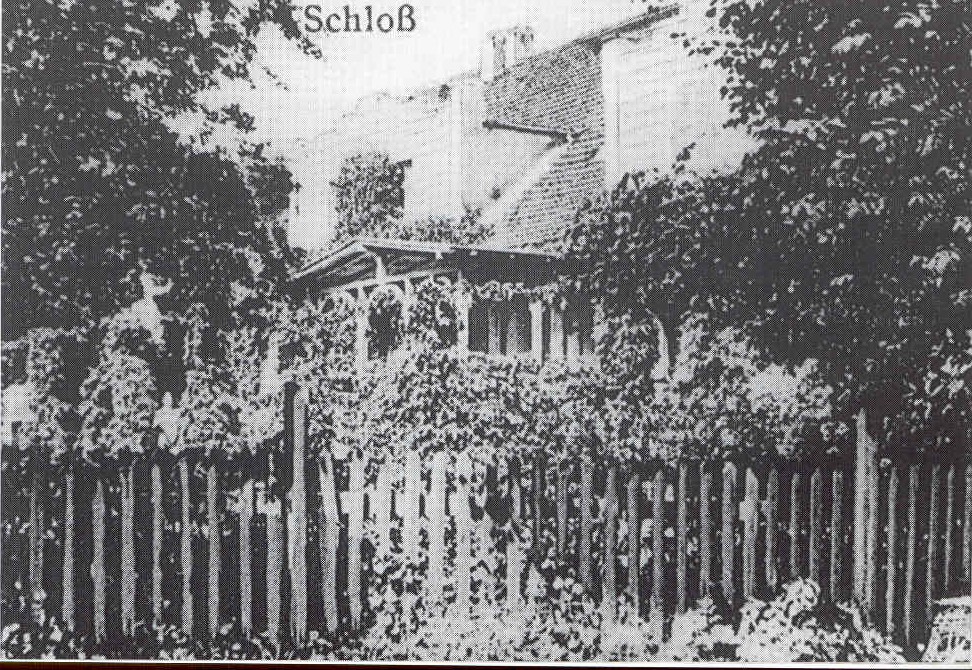
Pottlitz (Potulice)
Pottlitz is the ancestral home of the Polish nobility in this area of Poland. In those days, Poland was a feudal society ruled over by the nobility. Thus, most Poles were tied to noble's estates. The Germans were free agents but could only lease land in typically 20-year contracts. The Jews were more limited in what that could do and in this area mostly were involved in commerce.
Until 1688 the noble family in this area was the Grudzinski family. Then the family nearly died out and the family of a female cousin of Stefan Grudzinski who had married a Dzialynski took over. Most of the Remus contractual arrangements were with this Dzialynski family. In 1788 the noble family changed to the von Farenheit family. Then in 1798 it was the Jan Karol von Gerhard family. Perhaps, the Remus family no longer had connections with these new ruling families and perhaps that is why they fell of prominence in the early 18th century.
The Grudzinski family was particularly noted for its support of the Catholic Church in
Flatow. Also for its part in the battles in the Great Northern War with the Swedes. The Flatow castle was built in 1619 and destroyed by the Swedish army on 28 January 1657 (it is shown as the first drawing on the West Prussia opening page).The story is that Grudzinski raised a local army to fight a much stronger Swedish army but surrendered at Ujscie village about 30 miles south of Flatow. Thereafter, he was referred to as "traitor Grudzinski." Grudzinski redeemed himself by later raising another army that did defeat the Swedish army. In additional penance, the Catholic Church required that he pay for two new churches in
Krojanke, which he did do.Following is a picture of the decorated Grudzinski family coffin that is in the Flatow (Zlotow) museum.

The Dzialynski family seemed much more commerce oriented and established many schultz (village head), krug (tavern), and muller (milling) privilegs in the area. The Remus privelegs in
Ossowo, Schwente, Schmirdau, and Lukowo involved that family. The Zbosse privileg was with Alexander Potulice (a reference to this Pottlitz manorial estate) so may have also involved this family. Here are some of the family members as depicted in the Grudzinski estate near Posen.
Eventually by 1820, the family of the Kaiser (the Holzenzollern family) took over and held this land until at least the First World War.
Here is a map of the village:

Following the Second World War, the manorial estate shown on this postcard as a schloss (castle)

was turned into a communal farm whose major product is vodka. Below is a picture of the vacant land where the manor house stood, the big communal barn and the vodka factory next to the barn.
Click here to go to other West Prussia Villages.
Please send any information and queries to Bill Remus at
November 6, 2006